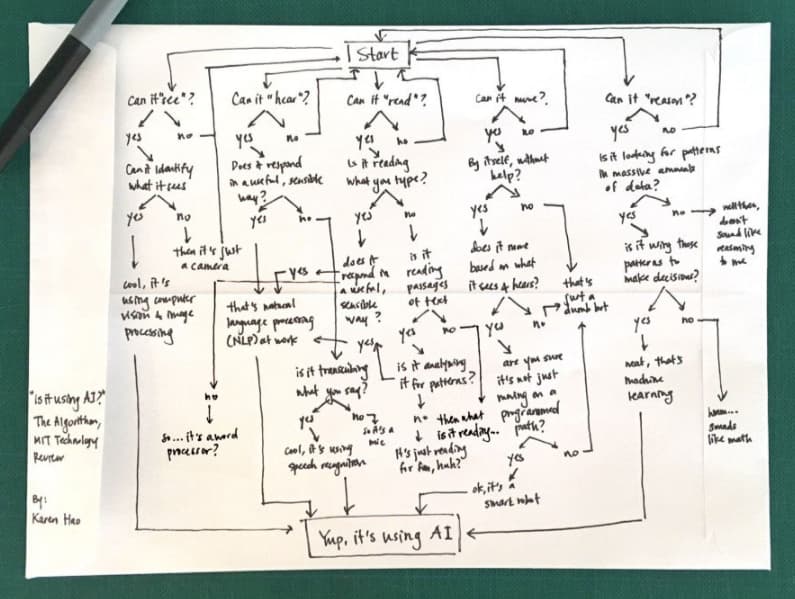Here’s the honest truth about AI in marketing: It’s a saturated market. Plenty of vendors claim their solution is AI-powered, but savvy buyers should learn how to see through the sales pitch and determine if they’re on the precipice of transforming their B2B marketing—or just shelling out for snake oil.
Make no mistake: AI is capable of automating all kinds of tasks, sorting through massive data sets, making informed decisions and predictions, and more—at scale. So as your B2B audience grows, you can implement intelligent automation to do things like recommend helpful content to users, optimize email subject lines for better open rates, and chat with website visitors through bots.
But what’s really AI and what’s not?
This post is your guide to separating the genuine innovators from the hype using three simple strategies.
1. Does It Actually Use AI?
AI has piqued an unprecedented level of interest in all industries, meaning plenty of vendors are ready to name AI or machine learning as the engines that power their tools. But just because a vendor calls something AI doesn’t necessarily mean the tool is powered by machine learning or deep learning.
Some vendors toss these terms around to describe simple automation, even if it isn’t actually AI. And others claim they’re using AI now, even if certain functions of their solution, which will incorporate AI someday, are still in the works.
It’s hard to tell what’s real and what’s hype. The flow chart below is a great starting point.

Image: Technology Review
The best way to really understand what you’re buying is to do lots of research and ask the vendors questions, especially about how the tool was trained to begin with. Example questions include:
- How does your company use AI today?
- What types of AI capabilities are on your product roadmap?
- What type of machine learning or deep learning does the product use?
- Do you have any case studies specifically about AI features?
2. How Does the Tool Improve Over Time?
Is the tool actually learning and improving over time?
Unlike many marketing tools, AI actually gets smarter as it processes more data. This means that AI needs tons of data to make really smart predictions. Over time, those predictions should get more accurate and should scale.
Ask any vendor for a high-level view of how their tool is getting better at the predictions and decisions it’s making. If you can’t get a clear answer, it may not be the best bang for your AI buck.
For instance, an intelligent automation tool like Automated Insights can automatically generate content at scale from spreadsheets full of data. However, the tool doesn’t learn how to improve its writing over time. It’s extremely useful, but relies on humans to build templates.
Compare that tool a tool like Gmail’s Smart Compose. Smart Compose guesses which words you’ll want to type next in any given email, speeding up email composition. But, this system learns on its own, improving the accuracy of its guesses over time based on the behavior of users.
3. What Kind of Data Do I Need?
AI tools require data to make accurate predictions. The amount of data and the type of data needed completely depend on the vendor. Because this will look different for every vendor, you’ll want to ask questions like:
- What kind of data do I need for the tool to function well?
- How much data do I need for the tool to function well?
- Where do I need to source the data from? Does it have to come from my brand or can we source it from third parties?
An honest vendor will tell you if you don’t have enough good data to help an AI solution make strong predictions, and if a workaround (like using public data) is available.
In every case, data is the fuel. And a sophisticated algorithm without data is like a Lamborghini without gas—you’re going nowhere fast.
Do I Have Enough Data and Good Quality Data?
For some AI tools to work, you need tens or hundreds of thousands of unique data points for it to learn from. Depending on the tool’s function, the vendor could also pull public data from the Internet to improve its function, but this is an important question to ask.
To see an AI solution for B2B audiences in action, check out this profile on how PathFactory hyper-personalizes the B2B buyer journey using AI.
Nick Edouard
Nick serves as the Chief Product Officer at PathFactory, a content insight and activation platform that helps B2B marketers understand the role of content in the buyer's journey.


-1.webp)